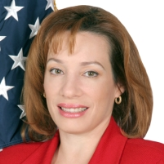Kosovo
If you ever find yourself on Bill Clinton Boulevard, looking up at an eleven foot high statue of Bill Clinton, you will know you are standing in Pristina, the capital city of Europe’s newest country, Kosovo, which owes its existence largely to the United States, and specifically to President Clinton’s decision to lead a NATO bombing campaign against Serbia in 1999. That year, the U.S. responded to human rights violation by the Serbian government against the ethnic Albanian majority in Kosovo by leading a military intervention that forced Serbia to withdraw its armed forces from Kosovo, which had been a Serbian province. The Republic of Kosovo eventually declared independence from Serbia on February 17, 2008, an act made possible by the ongoing occupation of the land by a U.N. peacekeeping force. Although Kosovo’s independence has been officially recognized by only one-third of the world’s nations, their number includes the United States and 22 of the 27 members of the European Union, the exceptions being Cyprus, Greece, Romania, Slovakia and Spain.
Lay of the Land: Kosovo is a landlocked territory bordered by Serbia to the north and east, Macedonia to the south, Albania to the west and Montenegro to the northwest (all but Serbia recognize Kosovo’s independence). The capital and largest city is Pristina (alternatively spelled Prishtina or Priština), with an approximate population of 500,000. With an area of 4,212 square miles, Kosovo is slightly larger than Delaware, its terrain dominated by a flat fluvial basin with an elevation of 1,300 to 2,300 feet above sea level, surrounded by several high mountain ranges with elevations of 6,500 to 8,200 feet. Kosovo’s climate is influenced by continental air masses, resulting in relatively cold winters with heavy snowfall and hot, dry summers and autumns, though Mediterranean and alpine influences create regional variation.
In antiquity, the Kosovo region was known as Dardania; from the 1st century AD it formed part of the Roman province of Moesia. The territory was first inhabited by the Illyrians; one of the ancestors of present-day Albanians, the other being the Dardanians.
Bota Sot (Albanian)
The U.S. has been critical to the modern-day development of Kosovo. President Bill Clinton’s decision to lead a NATO bombing campaign against Serbia led to Serbia’s withdrawal from Kosovo. As a result, Kosovars feel enormous gratitude toward the U.S. and to Clinton in particular, whom they believe saved them from genocide. As a way of showing that appreciation, in November 2009 Kosovo unveiled an 11-foot tall statue of Clinton, located on Bill Clinton Boulevard in Pristina, at a public dedication ceremony attended by the former President and thousands of Kosovars. To show further appreciation, the Kosovo has also named a street “George W. Bush Street.” The U.S. has since been a generous aid donor to Kosovo, and recognized its independence just one day after it was declared.
Famous Kosovars in the US
The US began trade with Kosovo in 2009. In that year, the US exported 5 million dollars and imported $400,000 worth of goods. US imports from the country began with $237,000 for “Other (boxes, belting, glass, abrasives, etc.)” while the largest export was meat and poultry at about $1.4 million.
Kosovo’s constitution promotes human rights and the government generally abides by these regulations. Major problems include ethnic tensions against Serbs and minimal progress in settling internally displaced persons.
Tina S. Kaidanow
 Ismaili, Akan
Ismaili, Akan
The ambassador from the new Balkan nation of Kosovo is, at 38 years of age, a leading representative of the generation of Kosovars who came of age during the autonomy and independence struggles against Serbia during the late 1980s and early 1990s. A tech-savvy telecom activist and executive who brought the Internet to Kosovo, Akan Ismaili was appointed as Kosovo’s second ambassador to Washington in April and presented his credentials to President Obama on May 2, 2012. In light of the pivotal role the U.S. played in establishing Kosovo’s independence during the late 1990s, this appointment may be the most important diplomatic post to Kosovo foreign policy.
Born circa 1974 in Kosovo, Ismaili began his undergraduate studies in computer science at the University of Pristina in 1992, at a time Serbia was trying to curb growing Kosovar nationalism by, among other steps, banning the use of the Albanian language, which Kosovars predominantly speak. As a result, the public school system, including the universities, split into two linguistically separate systems, although the Serbian government regularly harassed the Albanian-speaking system.
Ismaili withdrew from studies in 1994 to setup the first e-mail server in Pristina, which played a key role in helping the opposition organize against the Serbian regime. In the mid-1990s, Ismaili managed IT infrastructure for the U.S. consulate in Pristina. When the war of 1998-1999 started in Kosovo and the U.S. became involved in diplomatic negotiations, Ismaili served as a translator for U.S. diplomats. Before the NATO bombing of Kosovo began, Ismaili was evacuated to Vienna, where he led a team translating and distributing U.S. government information to the Albanian-language media in the region and at refugee camps.
Immediately after the NATO bombing ended in June 1999 with a victory for the Kosovars and the exit of Serbian forces from Kosovo, Ismaili co-founded Internet Project Kosovo (IPKO), a non-profit which has been credited with bringing the internet to Kosovo. In the beginning, IPKO used a satellite dish that had been donated to a refugee camp in Macedonia. “It was the most emotional moment of my life,” Ismaili later recalled. “Everybody was so excited to be part of the revolution that was happening after the Serbs left and there was no more oppression.”
In 2001, IPKO split into two entities: the for-profit IPKOnet and the non-profit IPKO Foundation. Ismaili served as CEO of IPKOnet, which provides access to broadband, mobile, fixed telephone and television in Kosovo, until it was taken over by Telekom Slovenije, a Slovenian telecom company.
During the same time, Ismaili co-founded the American University Foundation in Kosovo, which is raising funds to establish an American-style university in Kosovo. To date, the foundation has raised more than $8 million, which it has used for programs in conjunction with the Rochester Institute of Technology.
Ismaili is married and has children.
-Matt Bewig
Wiring Up Kosovo (by Akan Ismaili, Advocacy Project)
Balkans Online: In the trenches with the warriors fighting one of the nastiest information wars of the late 20th century (by Masha Gessen, Wired)
Rebuilding the Web in Kosovo’s Ashes (by Deborah Shapley, New York Times)
Kosovo 2.0 (by Verena Ringler)
Address: Presidential Plaza at 900 19th Street NW, Suite 400, Washington, D.C.
- Table of Contents
- News
- Overview
- Basic Information
- History
- Newspapers
- History of U.S. Relations with Kosovo
- Current U.S. Relations with Kosovo
- Where Does the Money Flow
- Controversies
- Human Rights
- Debate
- Past Ambassadors
- Ambassador to the U.S.
- Embassy Web Site in the U.S.
- Comments
- Leave a comment
U.S. Ambassador to Kosovo

Previous U.S. Ambassador to Kosovo

Christopher William Dell was confirmed by the Senate as the U.S. Ambassador to Kosovo on July 10, 2009, and sworn in on July 31, 2009. Born in 1956, Dell earned a B.A. from Columbia University in 1978 and an M. Phil. in International Relations from Balliol College, Oxford University in 1980.
If you ever find yourself on Bill Clinton Boulevard, looking up at an eleven foot high statue of Bill Clinton, you will know you are standing in Pristina, the capital city of Europe’s newest country, Kosovo, which owes its existence largely to the United States, and specifically to President Clinton’s decision to lead a NATO bombing campaign against Serbia in 1999. That year, the U.S. responded to human rights violation by the Serbian government against the ethnic Albanian majority in Kosovo by leading a military intervention that forced Serbia to withdraw its armed forces from Kosovo, which had been a Serbian province. The Republic of Kosovo eventually declared independence from Serbia on February 17, 2008, an act made possible by the ongoing occupation of the land by a U.N. peacekeeping force. Although Kosovo’s independence has been officially recognized by only one-third of the world’s nations, their number includes the United States and 22 of the 27 members of the European Union, the exceptions being Cyprus, Greece, Romania, Slovakia and Spain.
Lay of the Land: Kosovo is a landlocked territory bordered by Serbia to the north and east, Macedonia to the south, Albania to the west and Montenegro to the northwest (all but Serbia recognize Kosovo’s independence). The capital and largest city is Pristina (alternatively spelled Prishtina or Priština), with an approximate population of 500,000. With an area of 4,212 square miles, Kosovo is slightly larger than Delaware, its terrain dominated by a flat fluvial basin with an elevation of 1,300 to 2,300 feet above sea level, surrounded by several high mountain ranges with elevations of 6,500 to 8,200 feet. Kosovo’s climate is influenced by continental air masses, resulting in relatively cold winters with heavy snowfall and hot, dry summers and autumns, though Mediterranean and alpine influences create regional variation.
In antiquity, the Kosovo region was known as Dardania; from the 1st century AD it formed part of the Roman province of Moesia. The territory was first inhabited by the Illyrians; one of the ancestors of present-day Albanians, the other being the Dardanians.
Bota Sot (Albanian)
The U.S. has been critical to the modern-day development of Kosovo. President Bill Clinton’s decision to lead a NATO bombing campaign against Serbia led to Serbia’s withdrawal from Kosovo. As a result, Kosovars feel enormous gratitude toward the U.S. and to Clinton in particular, whom they believe saved them from genocide. As a way of showing that appreciation, in November 2009 Kosovo unveiled an 11-foot tall statue of Clinton, located on Bill Clinton Boulevard in Pristina, at a public dedication ceremony attended by the former President and thousands of Kosovars. To show further appreciation, the Kosovo has also named a street “George W. Bush Street.” The U.S. has since been a generous aid donor to Kosovo, and recognized its independence just one day after it was declared.
Famous Kosovars in the US
The US began trade with Kosovo in 2009. In that year, the US exported 5 million dollars and imported $400,000 worth of goods. US imports from the country began with $237,000 for “Other (boxes, belting, glass, abrasives, etc.)” while the largest export was meat and poultry at about $1.4 million.
Kosovo’s constitution promotes human rights and the government generally abides by these regulations. Major problems include ethnic tensions against Serbs and minimal progress in settling internally displaced persons.
 Ismaili, Akan
Ismaili, Akan
The ambassador from the new Balkan nation of Kosovo is, at 38 years of age, a leading representative of the generation of Kosovars who came of age during the autonomy and independence struggles against Serbia during the late 1980s and early 1990s. A tech-savvy telecom activist and executive who brought the Internet to Kosovo, Akan Ismaili was appointed as Kosovo’s second ambassador to Washington in April and presented his credentials to President Obama on May 2, 2012. In light of the pivotal role the U.S. played in establishing Kosovo’s independence during the late 1990s, this appointment may be the most important diplomatic post to Kosovo foreign policy.
Born circa 1974 in Kosovo, Ismaili began his undergraduate studies in computer science at the University of Pristina in 1992, at a time Serbia was trying to curb growing Kosovar nationalism by, among other steps, banning the use of the Albanian language, which Kosovars predominantly speak. As a result, the public school system, including the universities, split into two linguistically separate systems, although the Serbian government regularly harassed the Albanian-speaking system.
Ismaili withdrew from studies in 1994 to setup the first e-mail server in Pristina, which played a key role in helping the opposition organize against the Serbian regime. In the mid-1990s, Ismaili managed IT infrastructure for the U.S. consulate in Pristina. When the war of 1998-1999 started in Kosovo and the U.S. became involved in diplomatic negotiations, Ismaili served as a translator for U.S. diplomats. Before the NATO bombing of Kosovo began, Ismaili was evacuated to Vienna, where he led a team translating and distributing U.S. government information to the Albanian-language media in the region and at refugee camps.
Immediately after the NATO bombing ended in June 1999 with a victory for the Kosovars and the exit of Serbian forces from Kosovo, Ismaili co-founded Internet Project Kosovo (IPKO), a non-profit which has been credited with bringing the internet to Kosovo. In the beginning, IPKO used a satellite dish that had been donated to a refugee camp in Macedonia. “It was the most emotional moment of my life,” Ismaili later recalled. “Everybody was so excited to be part of the revolution that was happening after the Serbs left and there was no more oppression.”
In 2001, IPKO split into two entities: the for-profit IPKOnet and the non-profit IPKO Foundation. Ismaili served as CEO of IPKOnet, which provides access to broadband, mobile, fixed telephone and television in Kosovo, until it was taken over by Telekom Slovenije, a Slovenian telecom company.
During the same time, Ismaili co-founded the American University Foundation in Kosovo, which is raising funds to establish an American-style university in Kosovo. To date, the foundation has raised more than $8 million, which it has used for programs in conjunction with the Rochester Institute of Technology.
Ismaili is married and has children.
-Matt Bewig
Wiring Up Kosovo (by Akan Ismaili, Advocacy Project)
Balkans Online: In the trenches with the warriors fighting one of the nastiest information wars of the late 20th century (by Masha Gessen, Wired)
Rebuilding the Web in Kosovo’s Ashes (by Deborah Shapley, New York Times)
Kosovo 2.0 (by Verena Ringler)
Comments
U.S. Ambassador to Kosovo

Previous U.S. Ambassador to Kosovo

Christopher William Dell was confirmed by the Senate as the U.S. Ambassador to Kosovo on July 10, 2009, and sworn in on July 31, 2009. Born in 1956, Dell earned a B.A. from Columbia University in 1978 and an M. Phil. in International Relations from Balliol College, Oxford University in 1980.







Comments